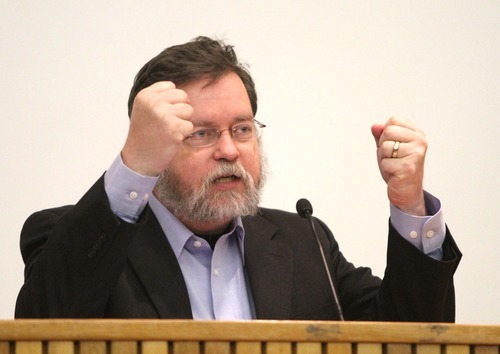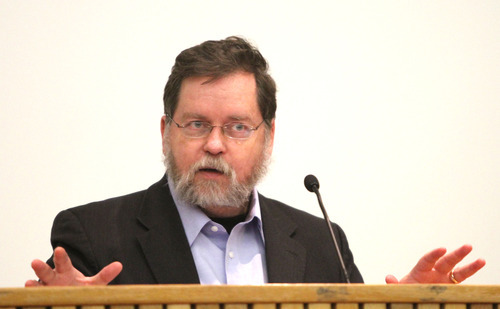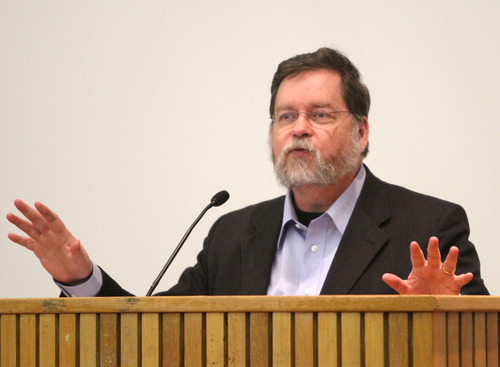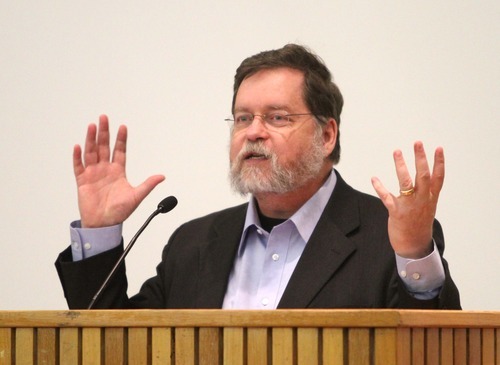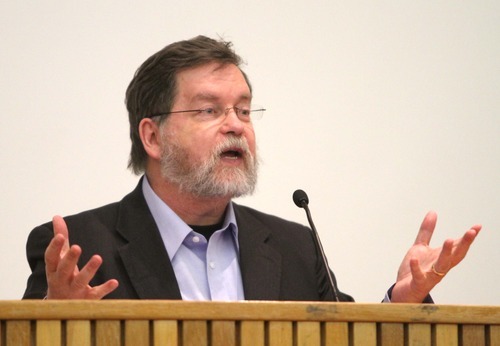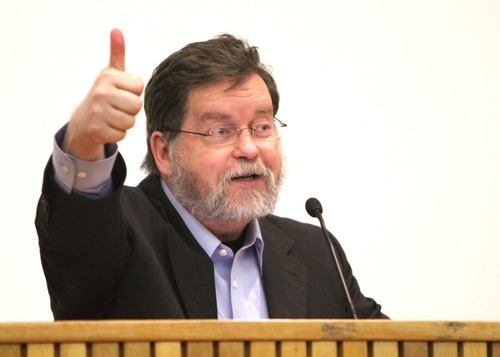This is an archived article that was published on sltrib.com in 2012, and information in the article may be outdated. It is provided only for personal research purposes and may not be reprinted.
It was not the kind of "sermon" you would expect on Easter weekend.
But in the interest of fairness and perhaps equal time amid all this talk of the Resurrection, University of Minnesota Morris biology professor and well-known atheist Paul "PZ" Myers told an audience Saturday at the University of Utah that it is science, not religion, that "bridges the differences among us."
"We speak the same language and share the same goals," he said during what he called "an angry atheist talk."
"We are united in our appreciation of the world. Science actually works, unlike religion," he added.
The professor, who once worked as a research assistant professor at the University of Utah in the early 1990s and is the author of the popular atheist and science blog Pharyngula, lectured to a crowd of nearly 200 people at the U.'s Orson Spencer Hall auditorium about what it takes to be a "good atheist."
He says an atheist believes in three core values: truth, autonomy and community.
As a scientist, he said, the only things that matter are evidence and data, something even liberal Christians will forgo.
"How many of the facts and data are you willing to compromise?" he said. "My answer is zero."
Atheists have long been thought of as "boat-rockers, then weirdos, then outcasts," he said. "And we like it that way.
"We're not sheep," he said about the autonomy that atheists should strive for. "We love people who stand up for themselves."
Finally, Myers said atheism is a growing community, citing more than 20,000 atheists who attended the Reason Rally last week in Washington, D.C. According to a 2008 Gallup poll of the U.S., 6 percent of those surveyed said they don't believe in a God, a higher spirit or universal power.
Yet "atheism is blossoming — it's coming out everywhere," said Myers, who was raised a Lutheran but left the church when he was 13. "We work together. We are happy together."
In Mormon-dominated Utah — where 66 percent of residents say "religion is very important to their lives," according to a 2009 survey by the Pew Forum on Religion & Public Life — Myers couldn't help make a few digs at the religious. "From the perspective of an atheist, they all look like total nut jobs," he said.
Myers even took jabs at moderate liberal Christians who "say they support good science … and the environment. They just happen to love Jesus.
"But I'm sorry," he quipped. "I still don't like you. … You believe in some outrageous bullsh—."
Certainly strong words during the Easter holiday, but Myers argued that religion is shaping governmental policy from social conservatives. In the past several months, moral issues including prayer in school, evolution, abortion, gay rights and contraception have been at the center of Republican politics. To combat it, he said, the atheist must rely on science.
"Science," he said, "is the atheist's weapon."


